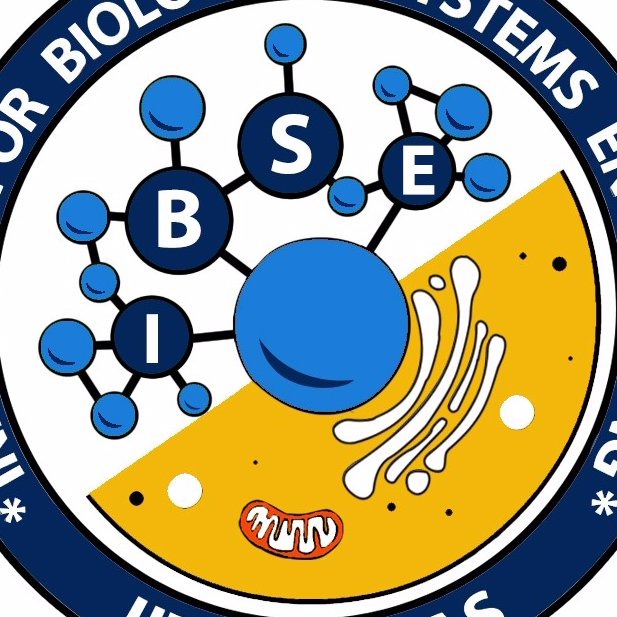
IBSE
@IBSE_IITM
Followers
683
Following
261
Media
106
Statuses
448
Centre for Integrative Biology and Systems mEdicine (IBSE)
Chennai, India
Joined November 2017
Welcome to the live coverage of the Symposium on Artificial Intelligence and Pharmaceutical Medicine (#AIPM-India), which is done in partnership with @pfizer, @IBSE_IITM & @WSAI_IITM. Watch this space for highlights and key insights as the day unfolds! @karthikraman @ravi_iitm
0
2
3
Join us for an exciting meeting with faculty from all IITs, IISERs, IISc & TIFR! We're inviting potential international & national postdoc fellows & senior PhD students to explore exciting opportunities at all HEIs in India. Don’t miss this chance to ignite ur academic career!
1
1
1
We are delighted to invite you to "Care Conference 2025-Molecules to Medicine: Bioengineering for One Health" organized by @iitmbt @iitmadras from 4-6 Dec 2025, which features eminent speakers and interactive sessions. Registration: https://t.co/9vFugFgULf
1
6
5
The big takeaway: Combine AI/ML with pharma expertise to accelerate repurposing and reduce costs.
0
0
0
The approach? ✅Build knowledge graphs combining proprietary + public databases. ✅Use graph neural networks (RGCNs) to predict drug–disease links. ✅Leverage LLMs for scalable, clean knowledge graph construction.
1
0
0
Karthik highlighted the fact that drug discovery is slow (15 years), expensive ($3B) and risky (90% failure). The costs are rising. Which is why he feels that drug repurposing is faster, cheaper and especially relevant in emergencies like COVID-19. AI can make it systematic.
1
0
0
#AIPM-India | Day 2 - Session 2 Karthik Upadhya (MedRenova) - AI for drug repurposing: MedRenova’s journey The talk was about MedRenova, a pharma start-up, previously in ML for networking, now focused on AI/ML for drug discovery.
1
0
0
The results? ✅Successfully identified known modifications in E. coli. ✅The method works at both population and single-molecule levels. ✅Enabled discovery of a novel viral RNA modification, later validated experimentally.
0
0
0
Apply novelty detection (via nearest-neighbour distances and calibration) to flag unusual subsequences. Use statistical testing (p-values, FDR control) to prioritise candidate modification sites.
1
0
0
According to the professor, the current methods rely heavily on supervised learning with annotated datasets, which limits discovery. This was the approach instead: Use the signature transform to represent raw nanopore current signals as fixed-dimensional vectors.
1
0
0
#AIPM-India | Day 2 Session 1 Prof. Thomas Cass - Mapping RNA Modifications using a novelty detection scheme for sequential data His talk was about the mathematical approach to detecting RNA modifications from nanopore sequencing data.
1
0
0
Patient Stratification & Trajectories – Mapping the entire patient journey, stratifying subgroups, and identifying treatments. The big takeaway: AI is promising, but prone to hype cycles — rigor and validation are essential.
0
0
0
Case studies discussed: Virtual Cell Biology – Simulating cellular behavior and drug combinations with transparent reasoning. Cross-Species Drug Testing – Predicting which preclinical findings translate to patients, with validation in clinical trials.
1
0
0
Make processes more efficient, explainable, and actionable. Support responsible, collaborative, data-driven science.
1
0
0
Krishna's talk highlighted the problem faced in the industry: drug discovery and development are complex, iterative, and fragmented. Signals are often lost between stages. The role of AI: Identify key signals at each stage and translate them forward.
1
0
0
AIPM-India | Day 2 - Session 1 Dr. @KrishnaCBulusu - AI for Precision Oncology How can AI transform biomedical research and precision medicine by connecting different stages of discovery, development and clinical translation?
1
0
0
Examples: ✅Using AI platforms to validate hypotheses quickly (e.g., mechanisms of disease). ✅Computational pathology to test targets across data sets. ✅Streamlined assays, molecular simulations, and commercial insights (e.g., patient/doctor feedback analysis).
0
0
0
Since AlphaFold, deep learning and biology have been feeding into each other, accelerating discoveries. Two main cases for AI: Productivity: Automating workflows & scaling tasks. Innovation: Enabling new kinds of reasoning, hypothesis generation, and scientific creativity.
1
0
0
The talk highlighted that AI in pharma is not a black box that instantly produces drugs, but rather an enabling tool at every stage of the value chain — from early discovery, target identification, and therapeutic design to characterization, scale-up, and commercialization.
1
0
0